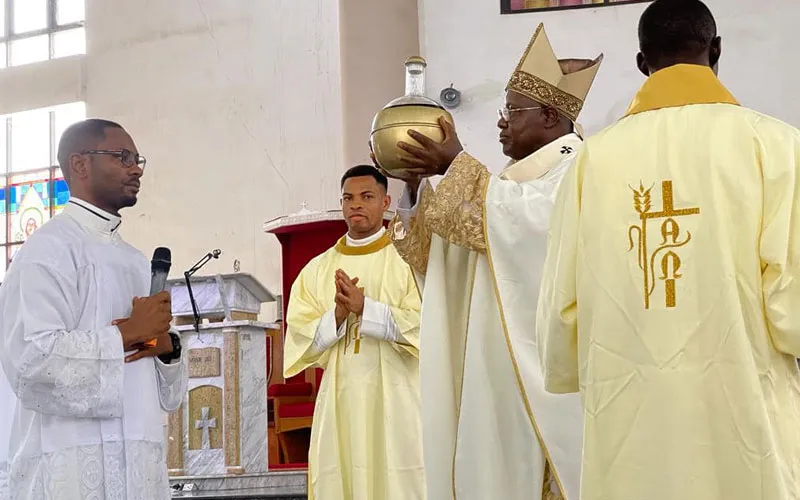
Politicians in Africa’s most populous nation “are so notoriously” keen on their own interests and foster narrow and discriminatory relationships with their respective constituents, a Catholic Archbishop in the country has said
Archbishop Ignatius Ayau Kaigama who was presiding over anticipated Chrism Mass on Tuesday, April 4 expressed his doubts about “political maturity” and “democratic maturity” in Nigeria, considering the tendency to make decisions on the basis of ethnic affiliation, the fostering of violent conflicts, as well as voter apathy.
“No doubt, our political maturity is still in question,” Archbishop Kaigama said, adding that politicians in Nigeria continue to make decisions on the basis of “region, religion, and ethnicity”.
Some of the politicians who seek to be elected as leaders in Nigeria “are so notoriously narcissistic and myopic that they only see the interests of theirs or their narrow religious or ethnic or political constituencies,” the Local Ordinary of Nigeria’s Abuja Archdiocese further said.
He decried the fact that during the concluded elections, many voters in Nigerians “were denied voting rights and even those who voted questioned the objectivity of the statutory bodies meant to guarantee fairness and justice.”
“The voter apathy and violence in some cases are signs of dissatisfaction and that we still have a long rough and tough journey to democratic maturity,” Archbishop Kaigama said adding that the discontentment of Nigerians calls for an examination of conscience by government, security agencies, political parties and the Independent National Electoral Commission (INEC).
“We should search our hearts to see our infidelities, falsehoods, hypocrisies, the good intentions betrayed, promises broken and resolutions unfulfilled,” he said during the anticipated Chrism Mass, traditionally celebrated on Holy Thursday.
The Catholic Church leader who started his Episicopal Ministry in April 1995 as the Bishop of Nigeria’s Jalingo Diocese cautioned his compatriots against divisions based on religion or region.
“Those who saw the recent presidential elections as a referendum between Christians and Muslims or the north and the south have badly missed the point, and such a view is the most divisive understanding of the Nigerian political reality,” he said in his April 4 homily during the Eucharistic celebration at Our Lady Queen of Nigeria Pro-Cathedral of Abuja Archdiocese.
In the Holy Mass during which Holy Oils were blessed, Archbishop Kaigama said the Lenten period presented Christians with a chance to fast from bad habits.
During the Lenten Season, he said, “Our fasting was not limited to material food but also from bad habits, such as telling white lies, gossips, demonizing others.”
The 64-year-old Archbishop went on to highlight other “bad habits” that Christians were expected to fast from, including “rationalizing sin in a manner that we do not see immoral practices as offensive, such as extortion on the highways, demanding money before services are rendered in government offices.”
Christians were also expected to fast from “biased recruitment into government agencies and parastatals, biased appointment to sensitive or high positions, inflation of contracts by officials, with jobs very poorly done to maximize illegal profit, changing of age without qualms by youth, all these call us to a conversion of heart,” Archbishop Kaigama said during anticipated Chrism Mass April 4.